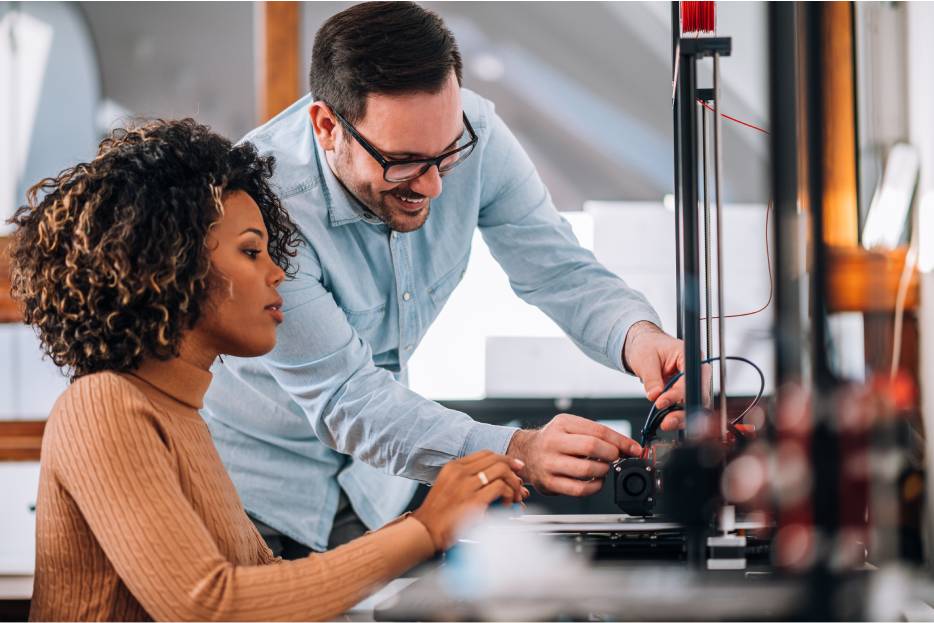In previous articles, we explore the reasons why registering your prototype is the best thing you can do to protect your future IP rights. This is important because establishing legal ownership in these early stages ensures that your invention remains yours and that you can benefit from the profits in the future.
Profiting from your invention means taking advantage of your intellectual property to generate revenue and maximize its commercial potential. So you can create a sustainable income stream, build a strong brand, or even expand your market presence.
If you choose this path, keep in mind that there are certain steps and considerations involved when you decide to start making money from your invention. For example, identifying the best revenue option or navigating the business side of profiting. In cases like this, a patent attorney Miami can help you manage the complex legal aspects of protecting and profiting from your invention by providing expert guidance throughout the process.
However, it’s also important for you to build certain knowledge based on the benefits and properties of each profit method so you can have an idea of which one aligns best with your invention’s potential and your personal goals. Learn more about it and discover in the following article how to profit from your invention.
Table of Contents
ToggleFirst step: Patent your invention
It may be obvious, but the first thing you need to do is ensure your intellectual property is fully secured before entering any commercial agreements or partnerships. This includes completing the registration process and ensuring all legal documentation is in place according to the U.S. Patent and Trademark Office (USPTO).
Technically, making money from an invention without an IP in place is possible. However, it will be a very complicated process that certainly will not lead to long-term success.
This is due to the lack of exclusivity and legal support to prevent others from copying and selling your invention as theirs or even issuing a patent before you do, making any of your commercial activities an infringement case.

Second step: Find the best way to profit from your invention
Once your IP is protected, analyze the different avenues for monetization. Our patent attorneys highlight at least three possible ways.
Transferring ownership
Transferring the ownership of a patent means selling their IP rights to another party permanently. In order to do so, the owner and their patent attorney Miami, need to reach a formal and written agreement with the buyer.
This contract must clearly outline the transfer’s terms, including payment details and the exact scope of rights being transferred. Additionally, the agreement should include warranties confirming that the buyer holds valid ownership and that there are no pending legal disputes or claims.
Now, why may a patent owner feel the need to sell their invention? Considering the work, time, and dedication that a project like this must have required, not including that giving up their IP rights means giving up all future royalties.
In some cases, despite all these factors, the patient owner may need more resources to bring the invention to a great scale. Selling the patent can definitely be a short-term solution but provide an immediate financial return, allowing the inventor to focus on new projects or avoid the risks and costs associated with commercialization.
Licensing a patent
A license is a type of commercial agreement between the licensor (patent owner) and the licensee (another person or company) in which the licensor allows the licensee to temporarily use, sell, and commercialize the invention in exchange for a percentage of the revenue, previously agreed upon, generated from sales.
Unlike a transfer agreement, a license secures the licensor’s rights over the invention, allowing the patent owner to benefit from ongoing income without directly engaging in the production or marketing of the invention.
The terms of a license agreement usually specify the duration of the contract, which can vary depending on the negotiation results, the territories where the license can operate, royalty rates, performance benchmarks, and exclusivity clauses.
If you want to generate profits from this method, it is important that you first find trusted companies who might be interested in this kind of partnership and then pitch your invention. During the negotiation process, a patent attorney Miami may advise you on how to structure the agreement to protect your interest and maximize the value of your patent.
Manufacturing the invention
When the patent owner does not wish to sell their invention rights or temporarily share them, they can profit by manufacturing the product. However, remember that this method can be a lot of work, as it comes with certain challenges.
It doesn’t just mean manufacturing and marketing a product but also building a company around it. It involves investing time and financial resources into creating and securing a brand with the support of trademark attorney Miami; writing out a business plan, developing a supply chain, and potentially hiring and training staff.
Of course, if you already have an established business, this is undoubtedly the simplest way to secure long-term revenue with your invention. As long as you have a solid legal team a great marketing and development strategy in place, you can maximize the potential of your invention and ensure consistent growth.

Third step: Choose the best outcome for you
How to decide whether to sell or produce your invention? There is no easy solution to answer this question as it depends on several factors unique to your situation. The decision requires carefully considering your financial resources, business capabilities, and long-term goals.
If you have the capital, infrastructure, and expertise to manufacture and market the product, producing it yourself could lead to higher profits and greater control over its development and commercialization.
On the other hand, selling or licensing your invention allows you to transfer the responsibility and cost of production to another party while still benefiting financially. Ultimately, consulting with industry experts, patent attorney Miami, and financial advisors can help you weigh the pros and cons and determine which path aligns best with your vision.



